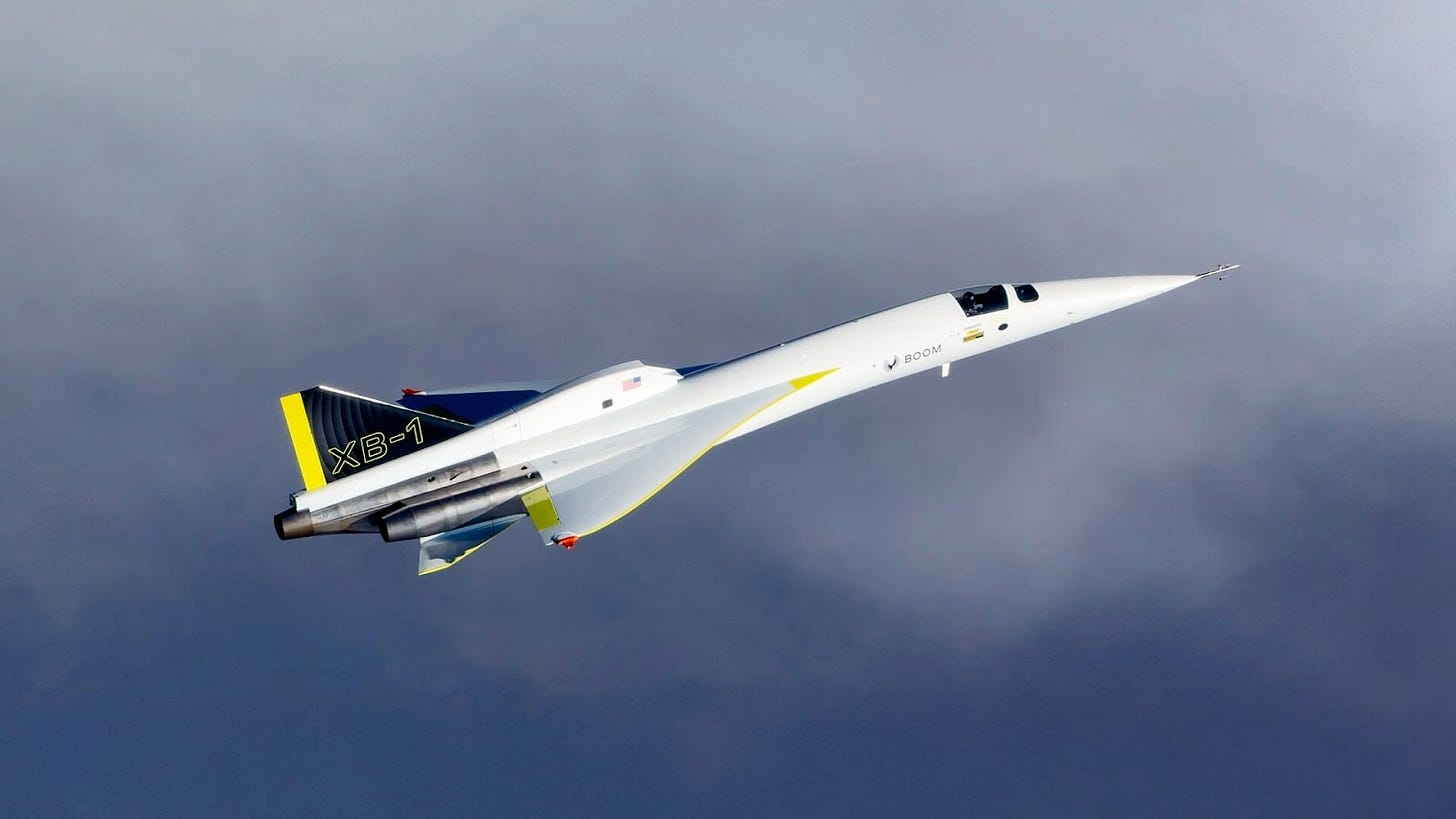The sound epistemics behind Boom's breaking of the sound barrier
Welcome to today’s installment of “Fantastic Builders and Where to Find Them.”
Builder’s Spotlight: Blake Scholl
Principles on display: Be intellectually ambitious, practice cognitive integrity, build yourself by building
My friend Blake Scholl has been in the news because of his company’s successful supersonic test flight—the first-ever supersonic flight of a privately developed jet.
Blake himself has also raised some eyebrows. “This guy pivoted into aerospace from Groupon?” Yes. But his builder’s story is richer than that.
Blake is a paragon of cognitive agency, of a builder breaking standard molds regarding his own thinking and knowledge. His vast ambition is grounded in rigorous epistemics.
Blake made an earnest inquiry into the reasons why supersonic couldn’t work; and when he found no good reasons, he started Boom. He trusted himself to start from scratch, in terms of both his network, his knowledge, and his expertise—he knew no one in the industry, had never worked in aerospace, and…




